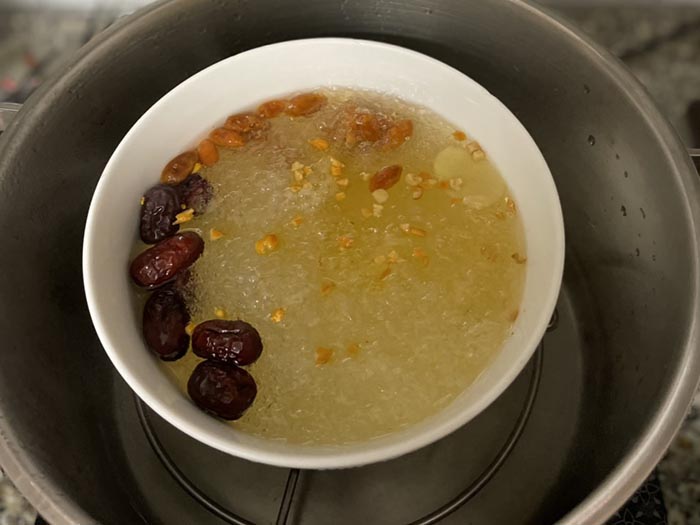News, PRODUCT CONSULTATION
The best time to use bird’s nest
**The Best Time to Use Bird’s Nest for Maximum Benefits**
### 1. Introduction: Understanding Bird’s Nest and Its Benefits
Bird’s nest, also known as *yến sào*, is a highly prized delicacy in many Asian cultures, renowned for its nutritional and medicinal properties. Made from the saliva of swiftlets, it is cherished for its potential health benefits, such as boosting the immune system, enhancing skin health, promoting better sleep, and improving overall vitality. However, to truly harness the benefits of bird’s nest, timing plays a crucial role. When consumed at the right time, the body can absorb its nutrients more efficiently, ensuring you get the maximum benefits.
### 2. The Importance of Timing When Consuming Bird’s Nest
While bird’s nest is packed with nutrients like amino acids, proteins, and essential minerals, consuming it at optimal times can enhance its effectiveness. The body’s ability to absorb nutrients varies throughout the day, so aligning your consumption of bird’s nest with your body’s natural rhythms can make a significant difference.
### 3. Best Times to Consume Bird’s Nest
#### a. **Early Morning (Before Breakfast)**
The most recommended time to consume bird’s nest is in the early morning, ideally on an empty stomach.
– **Why It’s Effective**: After a night of fasting, your stomach is empty and primed for nutrient absorption. Consuming bird’s nest at this time allows your digestive system to quickly break down the nutrients, leading to faster absorption into the bloodstream.
– **Benefits**: Eating bird’s nest early in the morning can boost energy levels, improve skin hydration, and support overall vitality throughout the day.
**Tip**: Prepare a warm bowl of bird’s nest with a bit of honey or rock sugar to gently wake up your digestive system.
#### b. **Evening (Before Bedtime)**
Another optimal time to consume bird’s nest is just before bedtime, around 9-10 PM.
– **Why It’s Effective**: The body undergoes repair and regeneration while you sleep. Bird’s nest contains glycoproteins and amino acids that can support this process, enhancing cell renewal and improving skin elasticity.
– **Benefits**: Consuming bird’s nest before bed is particularly beneficial for those looking to improve their skin, as it aids in collagen production and hydration while you sleep. Additionally, it can help promote deeper, more restful sleep.
**Tip**: Drink a warm bird’s nest tonic about 30 minutes before bedtime to help relax your body and prepare for a good night’s rest.
#### c. **During Pregnancy (Morning or Evening)**
For pregnant women, bird’s nest can be particularly beneficial when consumed during the second and third trimesters.
– **Why It’s Effective**: The nutrients in bird’s nest, such as sialic acid and amino acids, can support fetal development, enhance maternal immunity, and reduce the risk of pregnancy-related complications.
– **Benefits**: Regular consumption can help improve the mother’s overall health, support the baby’s brain and skeletal development, and even enhance the elasticity of the mother’s skin, reducing the chances of stretch marks.
**Tip**: Pregnant women should consult with their healthcare provider before consuming bird’s nest to ensure it’s suitable for their individual needs.
### 4. Seasonal Considerations for Bird’s Nest Consumption
– **Autumn and Winter**: Bird’s nest is particularly beneficial during colder months when the air is dry. It helps moisturize the lungs, reduce dryness, and alleviate symptoms like coughs and sore throats.
– **Spring and Summer**: While bird’s nest can be consumed year-round, reduce the intake during hot, humid months if you have a “hot” body constitution, as it can cause internal heat. In such cases, consume it in the evening for a cooling effect.
### 5. How Often Should You Consume Bird’s Nest?
– For **general wellness**, consuming bird’s nest 2-3 times a week is sufficient to reap its health benefits.
– For **specific health concerns** (like boosting immunity or improving skin health), daily consumption over a period of 1-2 months may be more effective.
– Pregnant women can benefit from bird’s nest 2-3 times per week during the later stages of pregnancy, but always consult a doctor first.
### 6. Common Mistakes When Consuming Bird’s Nest
#### a. **Overconsumption**
While bird’s nest is highly nutritious, consuming it excessively can lead to digestive issues or even negate its benefits. Moderation is key.
#### b. **Inconsistent Timing**
Inconsistent consumption can reduce its effectiveness. It’s better to stick to a regular schedule (e.g., every other morning) rather than consuming sporadically.
#### c. **Eating It With Heavy Meals**
Bird’s nest is best consumed on an empty stomach or with light foods. Avoid eating it immediately after a heavy meal, as the body’s focus will be on digesting the meal, reducing the absorption of nutrients from the bird’s nest.
### 7. Recipes for Consuming Bird’s Nest at Optimal Times
Here are a few simple recipes to make bird’s nest more enjoyable while maximizing its benefits:
#### Recipe 1: **Morning Bird’s Nest Tonic**
– Ingredients: 5g dried bird’s nest, 1 tablespoon rock sugar, 1 cup filtered water.
– Instructions: Soak the dried bird’s nest for 2 hours, rinse, and clean. Place in a double boiler with water and rock sugar. Simmer for 45 minutes. Consume warm on an empty stomach.
#### Recipe 2: **Evening Bird’s Nest Soup with Red Dates**
– Ingredients: 5g dried bird’s nest, 5 red dates (pitted), 1 tablespoon rock sugar, 1 cup filtered water.
– Instructions: Soak the bird’s nest and red dates separately for 2 hours. Combine all ingredients in a double boiler and simmer for 1 hour. Drink warm before bedtime.
### 8. Frequently Asked Questions
**Q1: Can children consume bird’s nest?**
Yes, children over the age of 1 can benefit from bird’s nest, especially during growth spurts. However, reduce the portion size and frequency to avoid overstimulation.
**Q2: Is bird’s nest safe for people with allergies?**
Bird’s nest is generally safe, but some people may have sensitivities to proteins in the saliva. Always consult a doctor if you’re prone to allergies.
**Q3: How do I store bird’s nest?**
Store dried bird’s nest in an airtight container in a cool, dry place. Prepared bird’s nest can be refrigerated for up to a week or frozen for up to a month.
### 9. Conclusion: Making Bird’s Nest Part of Your Wellness Routine
Timing plays a significant role in maximizing the benefits of bird’s nest. By consuming it at the right times, such as early in the morning or before bedtime, you can enhance your body’s absorption of nutrients, leading to better health outcomes. Whether you’re looking to improve your skin, boost your immune system, or simply enjoy a natural energy boost, bird’s nest can be a wonderful addition to your wellness routine.
By following the guidelines in this guide, you can optimize your consumption of bird’s nest, making it not just a luxurious delicacy but also an effective health supplement.

